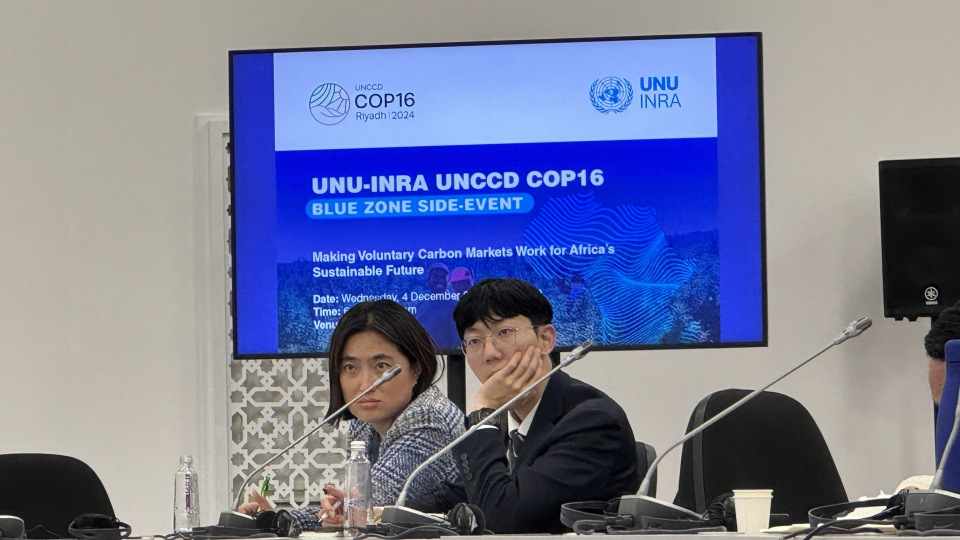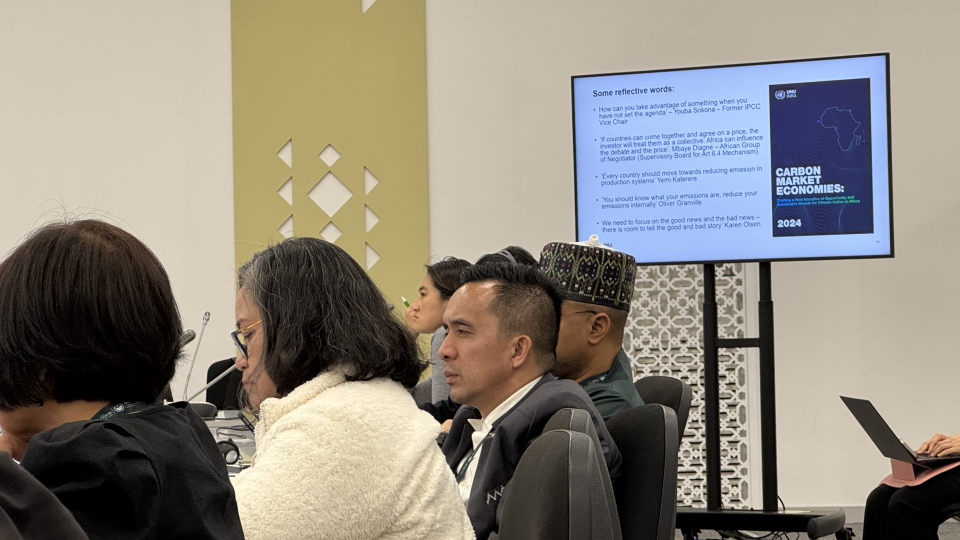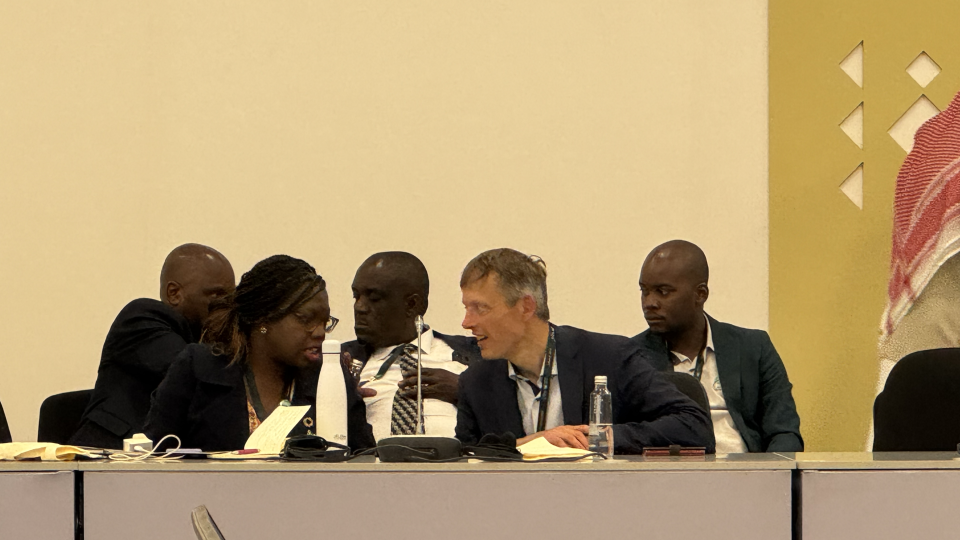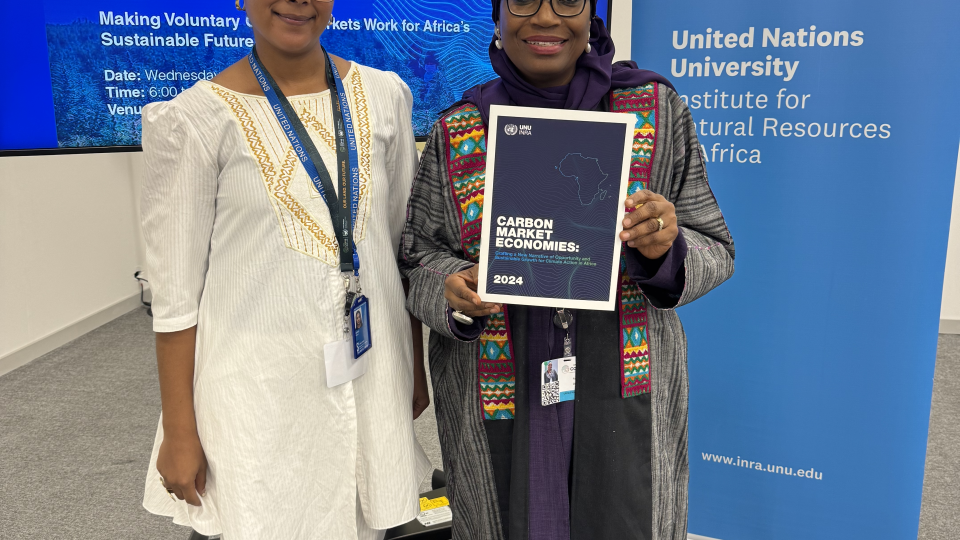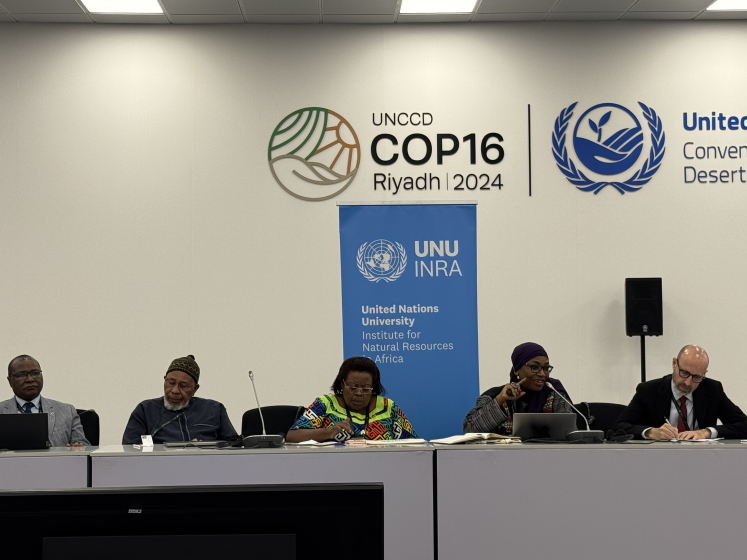On 4th December 2024, UNU-INRA launched a new report on voluntary carbons during a side event at UNCCD COP16 in Riyad. The panel discussion was grounded in insights from the report, which examined the political economy of carbon markets for Africa with a focus on issues around equity and governance. The report highlights how carbon markets, though promising, could perpetuate inequities and greenwashing without robust governance. As Dr. Yemi Katerere noted, “When we talk about carbon markets, we create expectations of significant revenue, but many challenges could undermine their effectiveness.” The discussion aimed to explore how Africa can leverage carbon markets to align with sustainable development while avoiding pitfalls like exploitation and inequitable benefits.
Carbon Markets as a Tool for Climate Action and Development
Carbon markets have immense potential to address both climate and development challenges in Africa. Fatima Denton described them as "an instrument, a means to an end," with the capacity to generate revenues that could drive infrastructure development, energy access, and economic growth. However, she cautioned that “the carbon market is not neutral; it inherently embeds inequities where wealthier countries seek offsets in the Global South, often displacing local communities.”
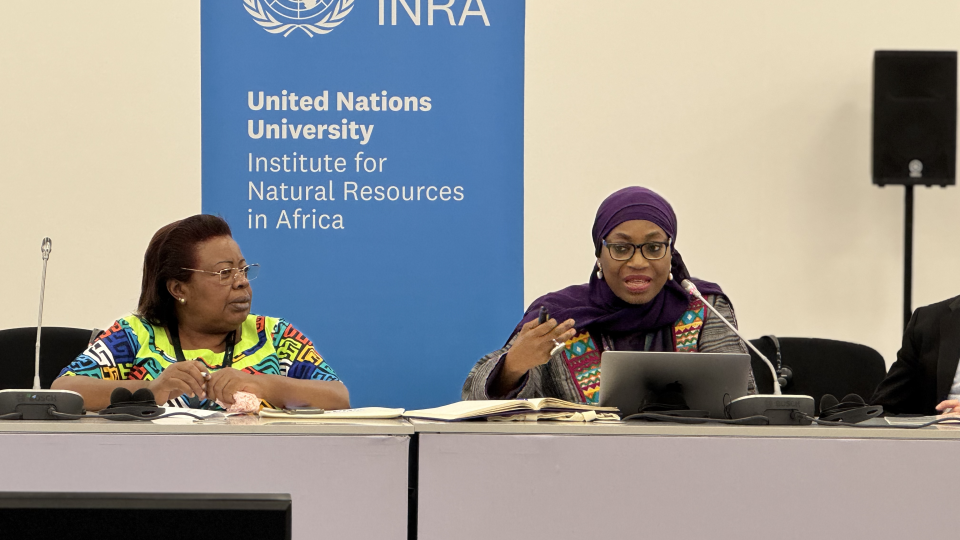
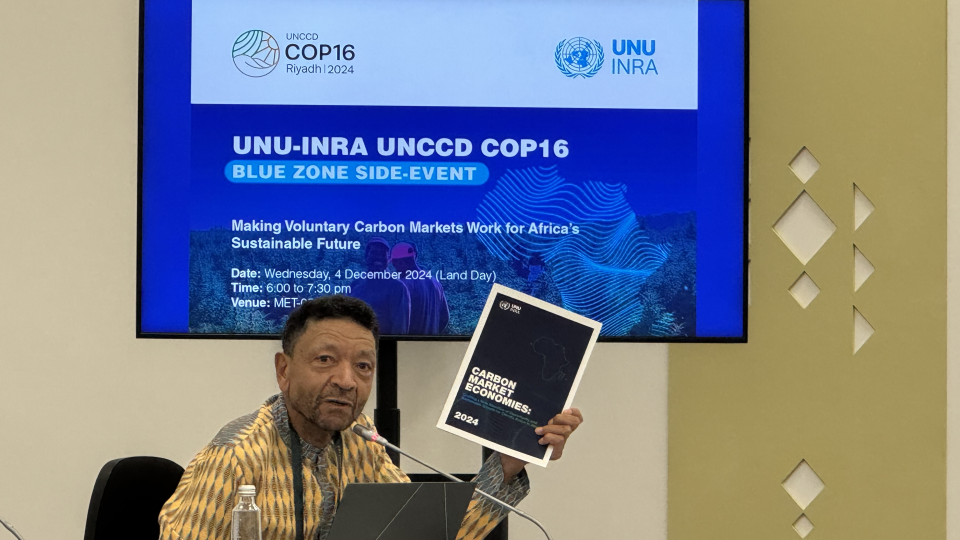
The Justice Deficit: Equity and Ownership
The panel emphasized the justice deficit inherent in current carbon markets. “The voluntary carbon market lacks regulation,” Dr. Katerere pointed out. “The question is, in terms of accountability, should the communities have benefited more than they actually did?” Gertrude Kenyangi highlighted a stark warning: “The current narrative around carbon markets masks a deeper concern: neocolonialism in disguise, with power asymmetries skewed in favor of the North.” Fatima Denton echoed these concerns, asking, “Whose offsets are we talking about? The very people and communities who have not benefited from overconsumption are the ones being asked to offset.” The panelists called for greater inclusivity and ownership for African communities to ensure carbon markets do not perpetuate exploitation.
Gender and Inequalities
When asked for concrete examples of how carbon markets have been instruments for emissions reduction and environmental stewardship, Gertrude Kenyangi noted that “I haven't heard of any that has been transformative and has delivered concrete solutions.” She further stated “Our experience shows discrepancies between agreements and practice in carbon markets—no free, prior, and informed consent, and gender inequalities exacerbated by the process.” In contrast, Chiyedza Heri, founder of Ubuntu Alliance, shared a success story: “Carbon financing through the Kariba REDD+ project funded the transition of smallholder farmers, predominantly women, to regenerative agriculture, showing resilience in the face of a massive drought.” However, the issue of gender inequality in carbon market project arrangements cannot be understated. Fatima Denton noted that there is a danger of having many middlemen, and there is a need to ensure these intermediaries do not become too powerful, posing the need to see more women in the language. Gertrude reflected, “In these [carbon credit] projects, the gender inequalities were exacerbated. There's income inequality, for instance, between men and women, because the women are not on the negotiation tables, and when the payments are made, they do not receive the money.”
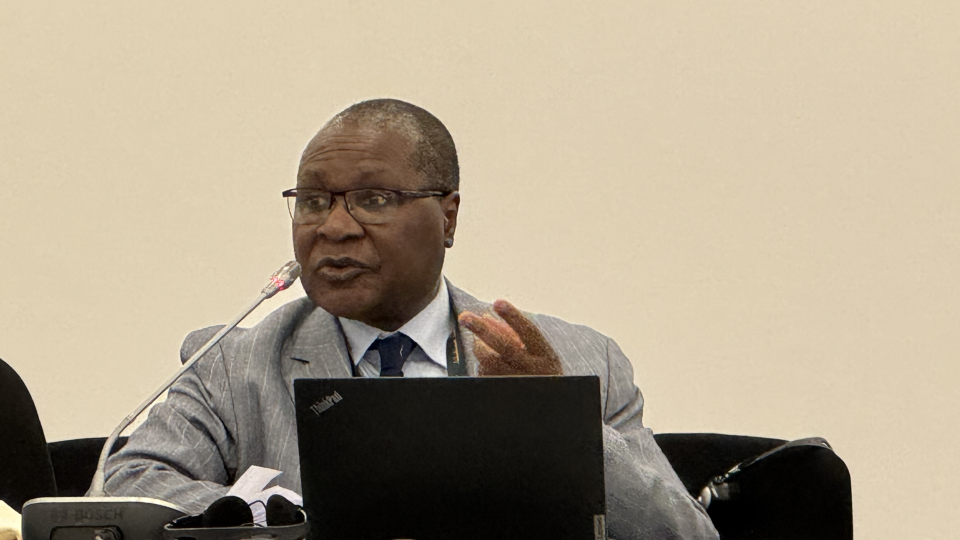
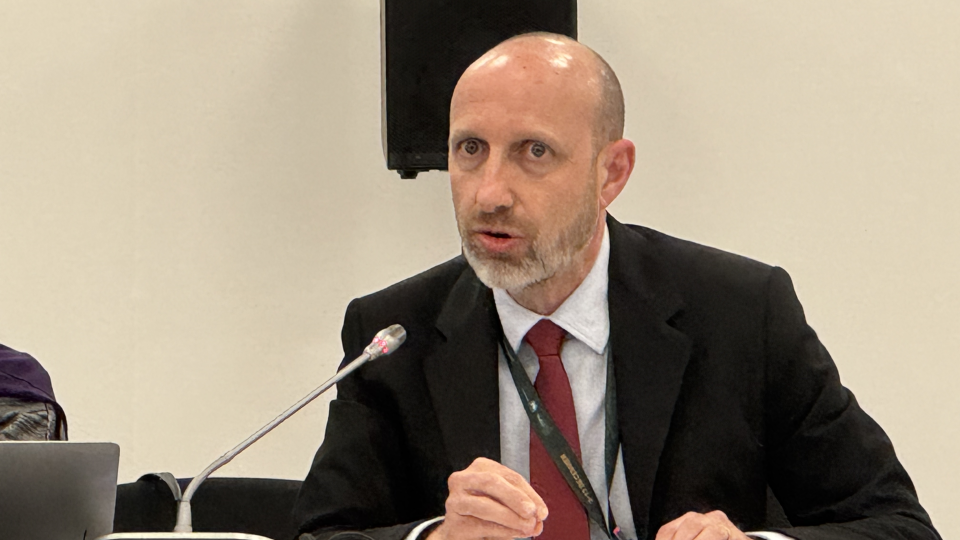
Governance and Regulation Are Non-Negotiable
Weak governance structures and the lack of regulation are major impediments to the effectiveness of carbon markets. Josep Gari observed, “Carbon markets are advancing with weak policy and institutional frameworks, which creates uncertainty and a lack of trust.” Echoing this, Muhtari Aminu-Kano emphasized, “Voluntary carbon markets can be an incredible force for good, but—there's a big but—they must be reformed.” The panelists agreed on the need for transparent systems, harmonized African policies, and a regulatory framework to ensure fairness and accountability. Jacquiline Amongin reinforced this urgency: “Regulation is crucial; without it, we risk being exploited.” In addition, Youba Sokona remarked, “It’s a complex issue even with regulation. In the African context, it’s tied to development agendas and climate extremes, requiring significant investment in capacity and institutions.”
Power Dynamics and Price Inequities
The asymmetry of power and pricing in carbon markets was a central theme. Fatima Denton remarked, “Power dynamics shape carbon markets, with richer countries setting the rules, leaving African nations as price takers.” Muhtari Aminu-Kano raised a key justice issue: “Why should the same carbon credit cost less in Africa than elsewhere?” This pricing disparity undermines the value of Africa’s contributions to global climate goals. Dr. Katerere further remarked, “African governments have always complained about low carbon prices and the domination of the carbon value chain by actors from developed countries, but they see carbon markets as a source of revenue they don’t need to ask for.” A unified African voice, as suggested by Aminu-Kano, could address such inequities and ensure that carbon markets operate on fair terms for African nations. Youba Sokona posited, “Carbon markets provide an opportunity to address Africa's critical challenges, such as deforestation, agriculture, and energy transition. But silos will not work; we need an integrated approach.”
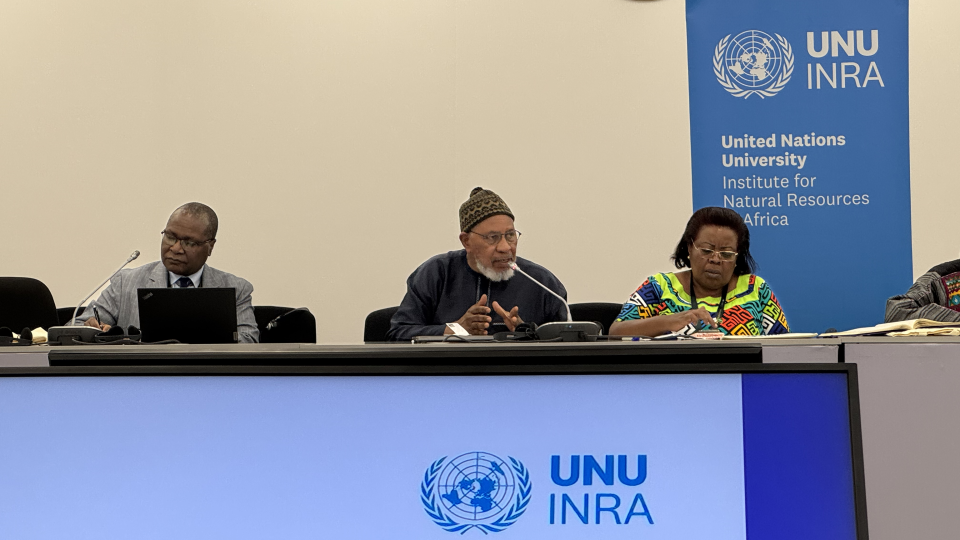
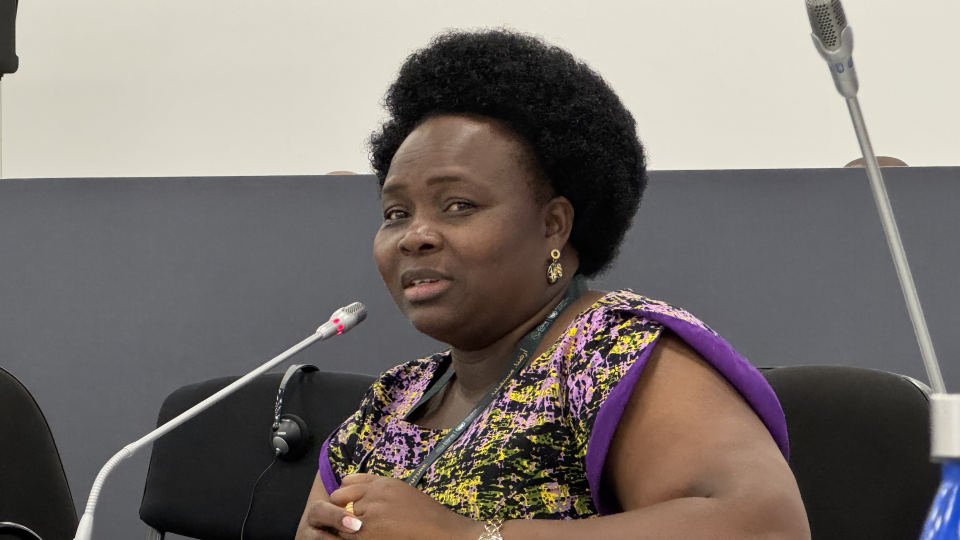
Moving Beyond Offsets to Systemic Solutions
While carbon markets are a valuable financial tool, they are not a panacea. “This is not a panacea; we need to address the underlying causes of emissions rather than only focusing on the symptoms,” Dr. Katerere stressed. Josep Gari elaborated, “Carbon markets are a financial instrument that can help climate action, but they are not a solution for Africa's development challenges.” Fatima Denton added that unchecked carbon trading risks becoming “an investor's bonanza” rather than a means for resilience building and local innovation. The panellists advocated for carbon markets to be integrated into broader strategies that prioritise low-carbon development and systemic transformation.
Should Africa Continue to Engage in Voluntary Carbon Markets?
Gertrude suggested that it would be beneficial to demand that countries/companies that are purchasing offsets pursue deliberate strategies to transition away from fossil fuels to alternative renewable energies before planting trees for sequestration while they continue to pollute. She boldly stated: “Carbon trading should be abandoned. We can plant trees for sequestration without trading with those who continue to pollute.”
Conclusion
The discussions underscored the need for Africa to approach carbon markets with caution and ambition, ensuring that they are vehicles for equitable and sustainable development. “How do we ensure accountability in carbon markets and that they contribute to social programs, rather than being seen as a greenwashing exercise?” asked Dr. Katerere. The panel called for robust governance, fair pricing, and community ownership to ensure that carbon markets serve as a bridge to a just and climate-resilient future for Africa.
The UNU-INRA report, Carbon Market Economies: Crafting a New Narrative of Opportunity and Sustainable Growth for Climate Action in Africa, is available here.
